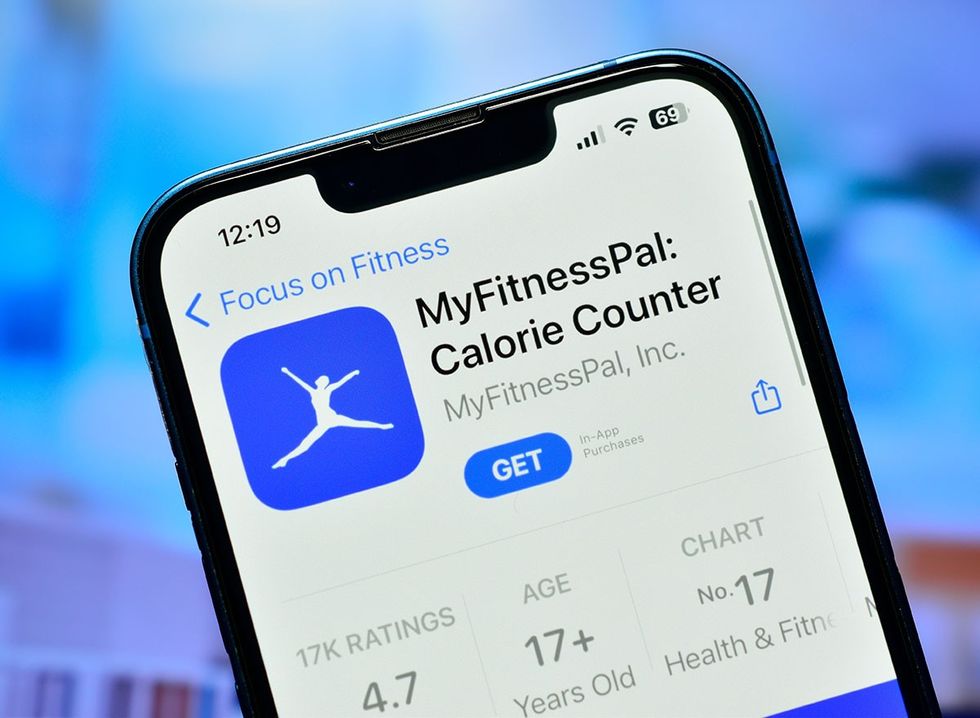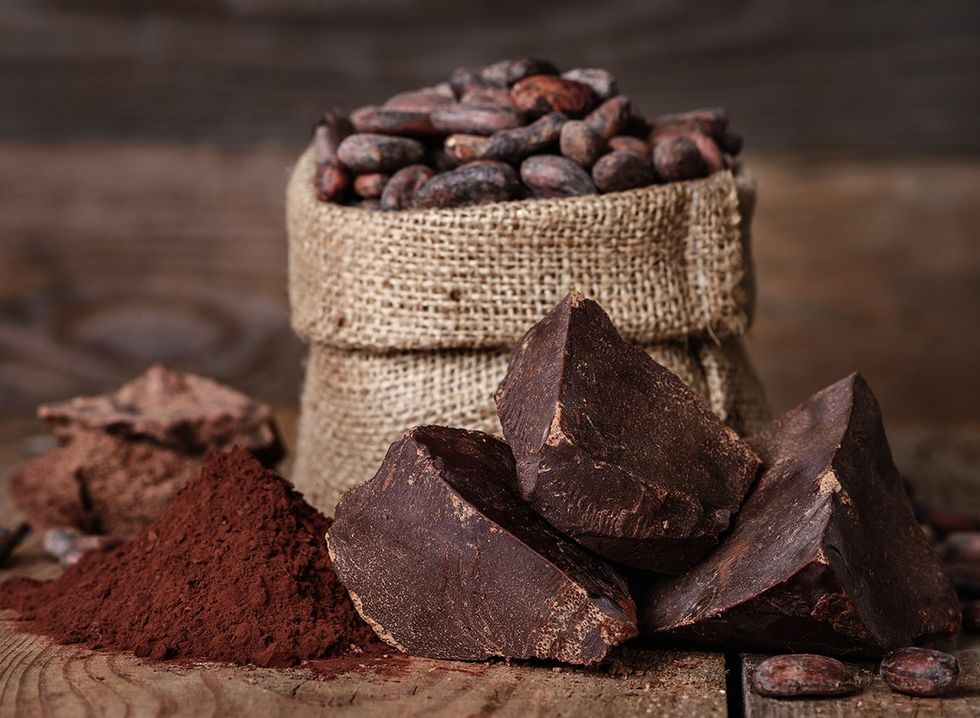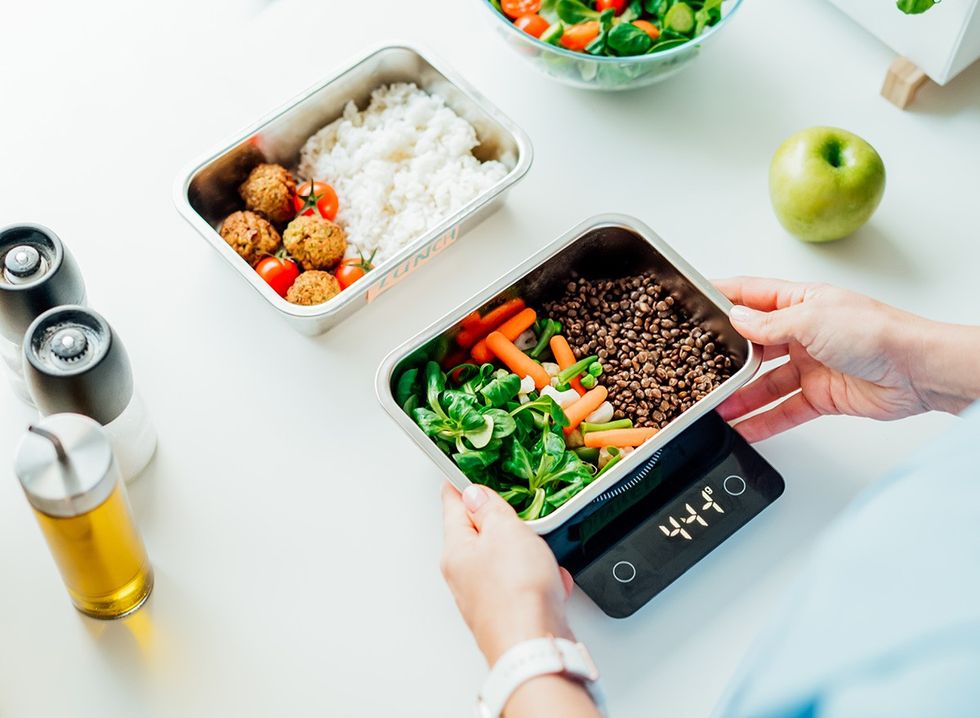Danni Ren is a social media influencer and weight loss warrior who lost a whopping 22 pounds in just three months. In a viral video, she details exactly how she did it. “I wasn't ever truly happy with the way I looked, but one day, I didn't recognize my body. My usual sizes didn't fit me anymore, so I got more and more frustrated at myself for letting it get to this point,” she says. Now, she claims she is the best version of herself. “I'm feeling the strongest and healthiest I've ever felt in my life.” In her video, she explains that she will be sharing her “tips to ease yourself into your weight loss journey and lead this healthy and balanced lifestyle that everybody talks about.”
Start by Figuring Out Why Your Diets Fail in the First Place
Dannie starts off by explaining the importance of analyzing why your diets aren’t working. “I think it's so important to look at why most diets fail rather than jumping straight into what exercises to do or meal planning for the week. Your experience may be different from mine, but I always failed my diet when I gave in to ‘bad food,’ like sugary snacks, bubble tea chips, or anything. When you indulge in bad food, usually it feels pretty good at first, but then it follows with this chain of emotions that you usually bring upon yourself, like self-pity, guilt, disappointment, and even self-forgiveness,” she says.
She points out that when dieting, “either consciously or subconsciously, you have an idea of what foods you should be saying no to, and usually those are the foods that you really enjoy,” so a diet is a constant test of willpower.
“But the longer I go without the food that makes me happy, the less happy I'll feel,” she says. Eventually, she will “crave it a lot and then give in, therefore, failing my diet,” she says. “You get the wave of emotions, the cycle repeats, but then your patient starts to run thin for yourself.”
Avoid the Emotional Eating Trap
“One of the biggest challenges that I didn't know I needed to face at the start of this weight loss journey is actually emotional eating,” Dannie admits. “I tend to turn to food when I'm feeling stressed, accomplished in need of comfort, or even when I'm bored, and while there's nothing inherently wrong with enjoying food, it can become a problem when it becomes a coping mechanism.”
She explains that breaking the pattern has been difficult. “It's taken a lot of mental fortitude to overcome my dependence on food to feel good. I thought that if I could stop the cycle of cravings and just break that entirely, then maybe I can actually be successful at my diet for once,” she says, revealing that a book by Janine Roth, Breaking Free From Emotional Eating, was a game changer. “It contains practical tips and strategies for overcoming emotional eating, and I love that the tips are all taught through the experiences and reflections of people who are also going through the same struggles,” she says.
Stop Using Food as a Reward
“One of the most important things I've learned is to stop using food as a reward,” says Danni. “Instead of celebrating a productive day at work with a massive meal or a sugary snack, I try to find other ways of rewarding myself, like through giving myself the free time to do anything that I wanted, even if it's doom scrolling, even if it's reading a book, as long as it's not food related. Something else I've realized is that if I stop putting my favorite foods on a pedestal, I actually end up thinking about it less and therefore craving it less.”
Practice Mindfulness and Self-Awareness
“Another strategy has been to practice mindfulness and self-awareness when it comes to my eating habits and my emotions,” explains Danni. “When I turn to food for comfort, I just like to take a moment and pause to check in with myself. Am I really hungry, or am I feeling stressed? If it's the latter, then I try to find other ways to cope, like journaling, maybe that will help, or even talking to my partner about how I'm feeling. This book really put me out of this tunnel vision with food, and I started to realize just really how manipulative it can be.”
Pay Attention to Insulin
“When dieting, I always focused on cutting calories and increasing my cardio, but I realized that there's another really important factor to consider, and that is insulin,” Danni reveals. “Insulin is a hormone that helps our bodies to store energy from the food that we eat. When we eat, our bodies release insulin to help move that energy into ourselves. But if our bodies are constantly bombarded with food, our insulin levels can remain elevated, which can make it harder for us to burn fat or enter fat-burning zones.” She also points out that insulin also spikes depending on what types of foods you eat. “Instead of opting for a carb-heavy meal that can spike your insulin and then cause a sugar crash or a food coma, try to find nutrient-dense foods that will keep your insulin low and steady,” she says.
Intermittent Fasting
“The idea of restricting myself and calorie counting just seems so exhausting for one and unsustainable. I just wanted to eat whatever I wanted and still be skinny. And that leads us to our next tip, which is intermittent fasting,” says Danni. “I think some people might view intermittent fasting as some sort of diet that's on the same playing field as these diets, but it's more of a long-term diet that doesn't actually limit the amount of food or the types of foods that you can have. Instead, it's just a little bit more restrictive in terms of when you can eat. So if I can still have ice cream, bubble tea, and all those great things, but I just need to have them within a certain time of the day, then that's a pretty good trade.”
She set up her window between 12:00 PM and 8:00 PM every day. “The idea is to limit the amount of time that your body is producing insulin. And to be honest, at first I was skeptical after understanding a little bit more about insulin. It sort of makes sense to keep it around only for a portion of the day rather than sporadically throughout the day by sticking to my eating window and allowing myself to eat whatever I wanted. Within that time frame, I found that I was able to satisfy my cravings in moderation without feeling deprived. And because I was only eating during a limited window of time, I found that I wasn't constantly thinking about food.”
She maintains that intermittent fasting “has truly been a game changer” for her. “You can eat the same thing, but if you just timed it differently, it could be the difference between you continuing to put on weight or losing weight.”
RELATED: I'm a 38-Year-Old Fitness Instructor And Here Are My 5 Daily Habits for Staying in Peak Shape
Focus on Nutrition Over Calories
She also recommends putting a stronger focus “on the nutritional value of food rather than the numerical value of food, like through calories,” she says.
“You want to set yourself up for success. And while calorie counting is a very easy and common way of tracking the amount of food that you've had, I feel like it's quite easy to lose sight of what is actually good for your body,” she says, pointing out that not all calories are made equal, “so it can be misleading if you just relied on the number to determine what you can and can't eat. Especially when we are busy and on the go, I feel like it's quite easy to lose sight and pick convenience over health.”
Pay Attention to Fiber, Protein, Healthy Fats
Instead of counting calories, she suggests paying more attention to things like fiber, protein, and healthy fats, “and generally making sure that you're getting a good balance of everything is much more sustainable and important for your long-term health,” she says.
“The great thing about this method is that it allows for so much flexibility and variety in your diet. You can still have fast food, just have it in moderation, but more importantly, focus on things that will make you feel your best. Of course, this doesn't mean that calorie counting is not useful or that it doesn't work. It definitely works. I just don't think it's very suitable as a daily measure to maintain your health over the long term.”
Create a Routine
“One thing that has been key to my weight loss journey is the art of showing up and the power of a routine,” she continues. “When we make healthy habits part of our routine, it's more likely to stick with us over the long term. Of course, building a routine is easy, it takes time and effort to build new habits, and sometimes we are going to fall back onto our old patterns.
She recommends the book Atomic Habits by James Clear, calling it “incredibly helpful” as his approach to habit formation “emphasizes the importance of small incremental changes that will add up over time. On days where going to the gym seems extremely farfetched, simply putting on my leggings changes that from ‘I don't really feel like it today’ to ‘But I need to move my body.’ There's just something about outfits and how they can really put you into another head space.”
RELATED: The 3-Step Secret to Perfect Push-Ups (Even If You Can't Do One Now)
Hit the Gym
Her last goal? “Simply rock up to the gym. Just get there. That's my next goal. The point is not to look too far ahead, just focus on what's next that will help you towards getting to where you need to be,” she says. “Can you imagine the amount of progress you'll make to anything that you do if you just mastered the art of showing up and the power of a routine?” And if you enjoyed this article, take advantage of these 15 Quick Ways to Lose Body Fat Percentage in a Week.








 Shutterstock
Shutterstock Shutterstock
Shutterstock Shutterstock
Shutterstock Shutterstock/siam.pukkato
Shutterstock/siam.pukkato Shutterstock
Shutterstock









 Shutterstock
Shutterstock Shutterstock
Shutterstock Shutterstock
Shutterstock Shutterstock
Shutterstock Shutterstock
Shutterstock Shutterstock
Shutterstock Shutterstock
Shutterstock Shutterstock
Shutterstock Shutterstock
Shutterstock

 I'm a Nutritionist and These 9 High-Protein Snacks Keep My Clients Full While Losing 50 Pounds
I'm a Nutritionist and These 9 High-Protein Snacks Keep My Clients Full While Losing 50 Pounds
 Shutterstock
Shutterstock 2. Processed FoodsShutterstock
2. Processed FoodsShutterstock Shutterstock
Shutterstock Shutterstock/Prostock-studio
Shutterstock/Prostock-studio Shutterstock
Shutterstock Pro TipsShutterstock
Pro TipsShutterstock Shutterstock
Shutterstock Shutterstock
Shutterstock Shutterstock
Shutterstock Shutterstock
Shutterstock Don’t Drink as Much AlcoholShutterstock
Don’t Drink as Much AlcoholShutterstock Most Women on GLP-1s Are Making a Few Common MistakesShutterstock
Most Women on GLP-1s Are Making a Few Common MistakesShutterstock Soda and Sugary DrinksShutterstock
Soda and Sugary DrinksShutterstock Shutterstock
Shutterstock Eat BreakfastShutterstock
Eat BreakfastShutterstock And Improve Insulin SensitivityShutterstock
And Improve Insulin SensitivityShutterstock Belly Flab Strip Tip: Sugar and Fat Calories Leave Its Mark on Your BodyShutterstock
Belly Flab Strip Tip: Sugar and Fat Calories Leave Its Mark on Your BodyShutterstock Shutterstock
Shutterstock The Drugs Mimic the GLP-1 Hormone Naturally Produced by the BodyShutterstock
The Drugs Mimic the GLP-1 Hormone Naturally Produced by the BodyShutterstock 3. Deep-Fried ItemsShutterstock
3. Deep-Fried ItemsShutterstock